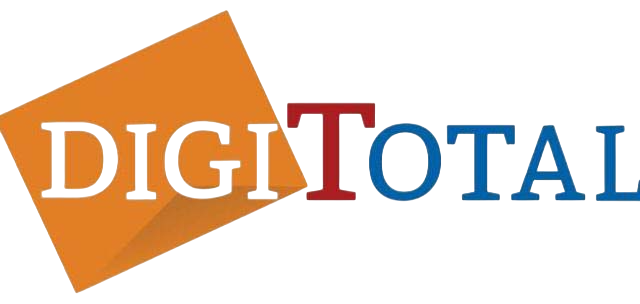As digital marketing continues to evolve, search engine optimisation (SEO) is becoming increasingly sophisticated. With advancements in artificial intelligence (AI), including the release of models like ChatGPT, marketers and business owners alike have access to tools that can enhance their SEO strategies like never before.
ChatGPT, specifically, is a powerful AI tool that can assist in everything from content generation to keyword optimisation. In 2025, its role in SEO will be more important than ever. In this blog, we’ll explore the key ChatGPT features you should leverage to boost your SEO results and stay ahead of the competition.
1. AI-Powered Content Creation
One of the biggest challenges in SEO is consistently creating high-quality, engaging content. ChatGPT makes this process much more efficient by generating human-like text that can be tailored to specific keywords or topics.
- Automated Blog Writing: ChatGPT can generate blog posts, articles, and web content in a matter of minutes. The AI’s ability to write fluently and in a natural tone helps create content that resonates with readers while being optimised for search engines.
- Topic Suggestions: Based on trending keywords or emerging topics, ChatGPT can suggest new content ideas that are highly relevant to your audience, which is critical for improving organic search traffic. (For more on how to identify trending topics, check out Google Trends to stay on top of what’s currently popular in your niche).
- SEO-Friendly Text: ChatGPT can assist in crafting SEO-optimised content by ensuring the right keyword density, using semantically related terms, and incorporating headings, subheadings, and meta descriptions that improve page rankings.
2. Keyword Research and Optimisation
Effective keyword research remains at the heart of any solid SEO strategy. ChatGPT can assist in discovering new keywords, refining your keyword strategy, and creating content that naturally integrates these keywords.
- Long-Tail Keywords: ChatGPT can help you identify long-tail keywords with lower competition, helping you tap into niche search queries that can deliver higher conversion rates. (Learn more about long-tail keywords in this Moz article ).
- Competitor Analysis: Using AI to analyse competitor websites and identify the keywords they are targeting can give you valuable insights. ChatGPT can quickly process and summarise this data, helping you refine your own keyword strategy. (For deeper insights on competitor keyword analysis, you can use tools like SEMrush ).
- Content Gaps: ChatGPT can analyse existing content on your website and suggest areas where additional keyword optimisation is needed or where there are content gaps you could fill with new articles or blog posts.
3. On-Page SEO Enhancement
On-page SEO refers to the elements you can optimise directly within your website to improve search engine rankings. ChatGPT helps streamline this process and ensures every page is optimised for search engines.
- Optimising Meta Tags: ChatGPT can generate SEO-friendly meta descriptions, title tags, and alt texts for images, ensuring that your content is properly indexed and easy for search engines to understand.
- Content Structuring: The AI can assist with structuring your content using appropriate header tags (H1, H2, etc.), bullet points, and paragraph lengths. Well-structured content improves both readability and search engine crawlability.
- Internal Linking: ChatGPT can suggest relevant internal links based on your existing content, helping to build a coherent content strategy and improve your site’s architecture.
4. Improving User Engagement and Dwell Time
User engagement metrics, like time on page and bounce rates, are becoming more important ranking factors for search engines. ChatGPT can improve these metrics by crafting content that keeps users engaged longer.
- Personalisation of Content: ChatGPT can generate content based on user intent, ensuring the material resonates with different segments of your audience. This personalised approach keeps visitors on your site longer, increasing dwell time.
- Interactive Elements: ChatGPT can be integrated into chatbots or interactive elements on your site, offering real-time assistance, answering questions, and keeping visitors engaged in a conversational manner.
5. Natural Language Processing (NLP) for SEO
In 2025, Google’s algorithms, especially BERT and RankBrain, will continue to evolve, placing greater emphasis on natural language understanding. ChatGPT’s advanced NLP capabilities make it a valuable asset for SEO professionals.
- Conversational Content: By crafting content in a conversational tone, ChatGPT ensures that it’s optimised for voice search and featured snippets. Voice search is becoming increasingly popular, and ChatGPT’s ability to understand and generate natural language responses positions your content well for these queries.
- Semantic Search Optimisation: ChatGPT understands context and can create content that aligns with the way people search, not just the individual keywords they type in. This makes it ideal for ranking well in semantic search algorithms.
- Featured Snippets: By providing direct answers to common questions, ChatGPT can help optimise content for featured snippets, increasing your visibility in search results.
6. Boosting Local SEO with AI-Driven Strategies
For businesses that rely on local customers, ChatGPT can play a pivotal role in boosting local SEO efforts.
- Localised Content Creation: ChatGPT can generate localised content that targets specific geographic areas, helping businesses rank higher in local search results. For instance, it can create city-specific landing pages or blog posts. (For more on local SEO, visit Moz’s Local SEO Guide ).
- Optimising Google My Business: ChatGPT can help generate optimised descriptions and posts for Google My Business, which is crucial for local SEO.
- Generating Reviews and Testimonials: The AI can help businesses develop templates for reviews and testimonials, which can then be used to encourage positive feedback from customers, improving your reputation and search rankings.
7. Enhanced Content Curation and Update
Content is not a one-time creation process. It requires constant updating and refreshing to remain relevant. ChatGPT can assist in automating some of this work.
- Content Refreshes: ChatGPT can suggest which old articles need updating with current information, new keywords, or added multimedia elements, ensuring your content stays relevant and competitive.
- Curated Content: ChatGPT can curate content from a variety of sources, summarising and providing key insights that can be shared as part of your blog or social media strategy, helping you stay ahead in your content game.
8. Automated Analytics and Reporting
In 2025, ChatGPT can play a more integrated role in SEO reporting, providing quick insights into your website’s performance.
- Performance Tracking: By integrating with analytics tools, ChatGPT can provide summarised reports on how your SEO efforts are performing, highlighting areas of improvement.
- Real-Time Insights: AI can analyse real-time data and adjust recommendations based on fluctuations in search trends, competition, or user behaviour, ensuring your SEO strategies remain agile.
Conclusion: Embrace AI for Future-Proof SEO
In 2025, integrating ChatGPT into your SEO strategy isn’t just a trend – it’s essential for staying competitive. With its ability to assist in content creation, keyword research, on-page optimisation, and more, ChatGPT can be a game-changer for your SEO efforts. By using AI to enhance every aspect of your SEO strategy, you can improve visibility, drive traffic, and ultimately grow your business.
Stay ahead of the curve, embrace the power of ChatGPT, and watch your SEO results skyrocket.

